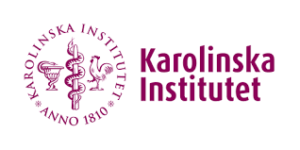AVAILABLE POSITIONS
Careers - Available positions
Join us in the field of Epigenetics!

Bioinformatician/ System Administrator
Center for Epigenomics Research
The Hong Kong University of Science and Technology
Position available: Bioinformatician/ System Administrator for Center for Epigenomics Research
Job ID: 5544
Job Title: Research Assistant/ Research Associate
Department: Center for Epigenomics Research, HKUST
The Center for Epigenomics Research is a part of EpiHK, our mission is to set the field of epigenetics in motion for researchers with various research interest. For more details, please visit the center homepage (http://epihk.ust.hk). We are currently seeking highly driven and enthusiastic individuals with experience in bioinformatics and system management to join our team.
Successful candidate will be responsible for maintenance and development of our database, deploy and develop existing pipeline to support various epigenomic analyses. He/She will also work on data curation, handling data deposition along with other computational tasks.
Applicants should possess a Bachelor’s degree or above in Bioinformatics, Computer Science or a related discipline. Proficient in UNIX/Linux systems and shell scripting, programming skills (R, Perl, Python or others), pipeline development and good organization skills are required. Experience in handling NGS data would be an advantage. Applicants should also be able to communicate effectively in English, and have the ability to work both independently and as a part of a team.
Informal enquiries can be made by contacting our center, email: epihk@ust.hk
Starting salary will be commensurate with qualifications and experience. Fringe benefits including annual leave, medical and dental benefits will be provided.

Post Doctoral Research Associate (three available positions at Taipale's group)
Department of Biochemistry
University of Cambridge, UK
Applications are invited for a Postdoctoral Research Associate position in the University of Cambridge, Department of Biochemistry, central Cambridge, working in the laboratory of Jussi Taipale, Herchel Smith Professor of Biochemistry. The focus of the work in the laboratory is aimed at understanding how DNA sequences determine where and when genes are expressed (see Yin et al., Science 2017; Wei et al., 2018 Nature Biotechnology; Zhu et al., Nature 2018), and how deregulated transcription drives tumourigenesis (see Sur et al., Science 2012; Dave et al, eLife 2017). The group’s research will have an impact on both the fundamental understanding of the regulation of gene expression, and on knowledge of the mechanisms that control cell growth during normal development and in pathologies such as cancer.
Position #1
Job ref : PH23687
Salary : £32,816-£40,322
As part of the phased development of the Taipale group in Cambridge, there is a position available for a Post-doctoral Research Associate using computational genome-wide approaches to study transcription and signal transduction.
The duties involve development and use of computational tools to analyse large in house and external datasets using advanced artificial intelligence, machine learning, computational biology, statistical and bioinformatic approaches. Applicants interested in any of the above research areas and/or interested in developing a novel research direction will be considered.
Position #2 & 3
Job ref : PH23684
Salary : £32,816-£40,322
As part of the phased development of the Taipale group in Cambridge, two positions are available for Post-doctoral Research Associates studying growth regulation in normal cells and cancer models using high throughput biochemical assays and functional genomics approaches combined with genome engineering.
The main duties will involve designing and performing genome-scale experiments to understand the role of transcriptional networks in cell growth regulation, using genome editing as well as computational analysis of the experimental results.
For Position #1,2 &3, the successful candidates should have (or be close to completing) a PhD in one of the following: Computer Science, Genetics, Biochemistry, Systems Biology, Computational Biology, Medicine or a related field. Applicants interested in any of the above research areas and/or interested in developing a novel research direction will be considered. Applicants with first author or co-author publications, or work completed for publication, would be preferred. The appointment is initially for two years with the possibility of extension based on performance.
The selection process will be conducted in October 2020 and the post is available immediately thereafter. The funds for this post are available for 24 months in the first instance.
To apply online, please visit https://www.jobs.cam.ac.uk/job/26532/ for Position #1 or https://www.jobs.cam.ac.uk/job/26529/ for Position #2 & 3 and register an account with our recruitment system (if you have not already).
Informal enquires can be made by contacting Dr Minna Taipale, email: mt779@cam.ac.uk; further information on the Taipale lab can be obtained at https://www.bioc.cam.ac.uk/research/uto/taipale
Please quote reference PH236xx on your application and in any correspondence about this vacancy

Bioinformatician (two available positions)
Unit of Molecular Neurobiology (MBB)
Karolinska Institutet, Stockholm, Sweden
Your mission
The successful candidates will be actively working in specific projects with single-cell and bulk transcriptomics and epigenomics, and will be integrated in a multidisciplinary team comprising computational, molecular and cellular biologists. The core bioinformatician will also work on web development, data curation, handling of data integration and visualization frameworks, among other tasks.
Your profile
We are looking for highly motivated, driven, inquisitive, enthusiastic persons interested in our area of research, and ready to explore new avenues in science. The candidates should have a collaborative approach to research, working productively in a team and contributing to a good social environment in the laboratory.
The applicants must have at least a Master in bioinformatics and computational biology (for the core bioinformatician position) or PhD degree (for the post-doctoral bioinformatician position), and strong programming skills (R and/or Python and/or others), UNIX and LINUX systems knowledge, familiarity with data science a big data. Research experience and expertise in analysis of sequencing data is highly desirable. Wet lab experience is not required but it is an advantage for the postdoctoral bioinformatician position.
Note: qualification to be employed for the postdoctoral position is a doctoral degree or equivalent scientific competence. Applicants who have not completed a doctorate at the end of the application period may also apply, provided that all requirements for a completed degree are met before the (intended) date of employment. This must be substantiated by the applicant’s main supervisor, director or equivalent.
What do we offer?
A creative and inspiring environment full of expertise and curiosity. Karolinska Institutet is one of the world’s leading medical universities. Our vision is to pursue the development of knowledge about life and to promote a better health for all. At Karolinska Institutet, we conduct successful medical research and hold the largest range of medical education in Sweden. Karolinska Institutet is a state university, which entitles to several benefits such as extended holiday and generous occupational pension. Employees also have access to our modern gym for free and receive reimbursements for medical care.
The Unit of Molecular Neurobiology has presently seven research groups, focused on several aspects of development, stem cell biology, neuroscience and cancer, providing a unique critical mass and expertize, and vibrant scientific environment.
The Castelo-Branco research group is interested in the molecular mechanisms defining the epigenetic state of cells of the oligodendrocyte lineage. We are focused on how interplay between transcription factors, non-coding RNAs and chromatin modifying enzymes contribute to the transition between states within the oligodendrocyte lineage, with the aim to design epigenetic based-therapies to induce regeneration (remyelination) in demyelinating diseases, such as multiple sclerosis. Our research group has performed single nuclei/cell RNA-Seq and identified several cell states within the oligodendrocyte lineage in development and disease (Science 2016, Dev Cell 2018, Nature Medicine 2018, Nature 2019). Our findings suggest that oligodendrocyte lineage cells might present other functional properties than previously thought.
Dr. Ana Mendanha Falcão has recently established her research group, which is focusing on the role of the choroid plexus in diseases such as multiple sclerosis. Her team aims to investigate the choroid plexus as a source of biologically active molecules to the central nervous system, in order to influence disease dynamics. The choroid plexus will be studied as an alternative target for disease therapies since it can be modulated by peripheral blood and it can substantially alter the brain composition both in terms of biologically active molecules and immune cell content.
Location: Biomedicum, Solna (Stockholm, Sweden)
https://ki.se/en/mbb/goncalo-castelo-branco-group
http://www.icvs.uminho.pt/about-icvs/people/analuisafalcao
